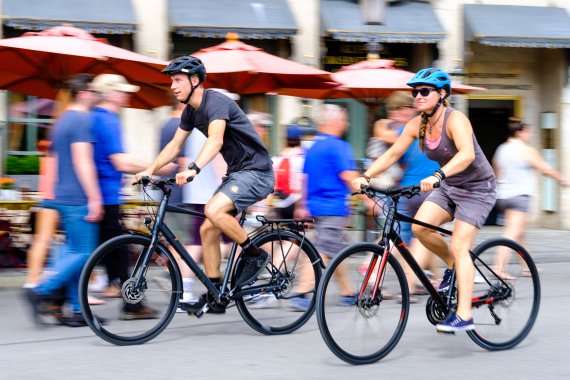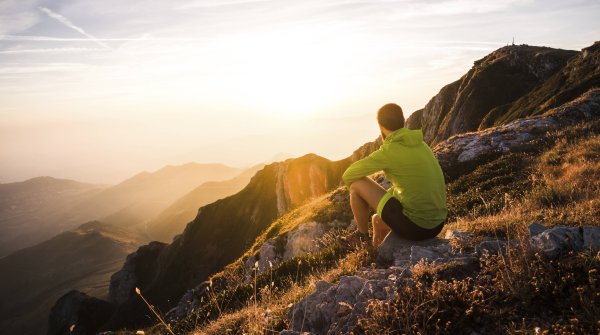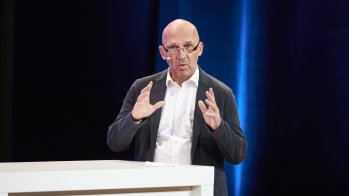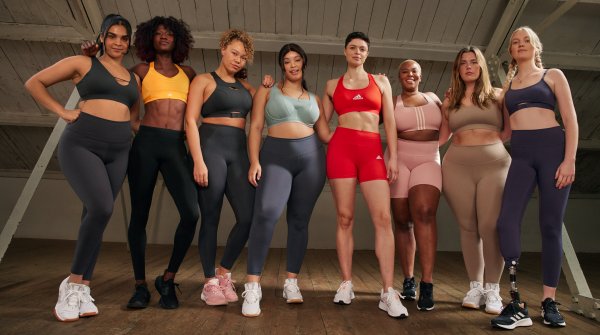
What has the bicycle industry learned from the Corona pandemic? "I think we have to position ourselves in the future so that we can react even more flexibly and adapt to market changes," says Dennis Weijers of Shimano Europe. The year 2020 has got off to a very good start - until the shutdown. "There were many imponderables and nobody knew how best to react quickly," Weijers looks back. But after a brief moment of shock, things soon started to pick up again.
This is also confirmed by Kevin Mayne, CEO of the Cycling Industry Europe industry association. Even if a little more cautiously. The brand new market study by CIE does not paint a completely uniform picture. "It seems that the industry as a whole has taken a big step forward. Basically, the current situation is good and - not surprisingly - much better than in March". But this does not apply to all areas, explains Kevin Mayne.
The retail trade, i.e. those who are close to the consumer, has recovered the most. "But we must not be deceived by the rush of customers to the bike shops. In the B2B sector we still have a minus of around twelve percent in some areas. But here, too, we are seeing a recovery".
The perception of the bicycle has changed dramatically in recent years. Today the bicycle is an important component of mobility. Especially during the lockdown, many people realized that they can get around the city better by bike - without getting stuck in traffic jams and without the congestion of public transport. "Of course we have benefited enormously in recent months," says industry representative Mayne. "But that started even before Corona". And it is no coincidence that the industry is looking so good today.
Because the bicycle industry has positioned itself well in recent years, employs professional lobbyists and marketing experts. That paid off: Even in the middle of the Corona crisis, the industry had a strategy and was able to show that cycling is essential: for functioning mobility, for health, but also for fun. "I would say that we have put the bicycle in a positive light," explains Kevin Mayne.
This positive picture has now also become established in politics. According to the latest estimates by Cycling Industry Europe, spending on new cycle paths, the promotion of cycling and infrastructure in Europe will amount to around 900 million euros in the coming years.
Shimano man Dennis Weijers is also sure: "The bike is cool again. For all of us in the industry it is now a question of maintaining this dynamic in the long term. It's not just hype, but more and more people are recognizing the advantages of the bicycle, not only in sports, but also in everyday traffic. The bicycle simply offers good solutions for many challenges in the city and in the country.
Reto Aeschbacher is also looking positively into the future, but also sees important tasks for the future. The industry has experienced a rollercoaster ride through Covid-19, he said. "At the beginning we had serious doubts: Will the supply chain hold? Can we even sell bicycles?", explains the CMO of Scott Sports. "Looking back, we see - it worked very well and in many places we are sold out.
Highlights of the ISPO Re.Start Days in pictures
What the entire industry is profiting from is certainly a mega-trend. The discussion about cycling is no longer just about sport and pleasure, it is increasingly about mobility. The topic of sustainability is coming more and more to the fore. "And the bicycle is simply the most environmentally friendly means of transport," says Aeschbacher. The subject of health is also becoming increasingly important. People who commute by bike instead of by car live healthier lives and stay fit. "But to promote this in the long term, we need the right infrastructure," Reto Aeschbacher clarifies.
In the past five years, a lot has happened, many people have come to cycle again, especially commuters, families with transport bicycles, but also older people. There was a lot of support from politicians, including tax benefits. And of course cycling experienced a small boom during Covid-19.
"Interestingly, there was quite a high demand also in the medium to low price segment", explained Aeschbacher at the ISPO Re.Start Days. "For me, this is a sign that many new customers got on their bikes." By the way, not only in Europe, but especially in markets that are even more strongly influenced by cars, such as Australia or the USA.
But what will happen to the boom when Covid-19 causes supply bottlenecks? Dennis Weijers from Shimano waves us off: So far, everything is fine. At best, the manufacturers will have to order a little earlier than in previous years. "We are definitely expecting growth in the next two years, and we have to prepare for this in good time," says Weijers.
While industry and trade seem to be on the upswing again, the holiday regions with strong bicycle tourism still face the biggest challenges. Marco Pointner, Managing Director of the Saalfelden Leogang Tourism Association, and his team have had some turbulent weeks behind them. Of course it was calmer during the lockdown on the trails in the Salzburger Land.
But in the background, operations were running at full speed. For the tourism managers, it was a matter of a broad balancing act: the safest possible conditions for the guests while at the same time providing the greatest possible biking fun. "We want our guests to experience the best of Saalfelden-Leogang," explains Marco Pointner. The lifts have been open again since 29 May. And the experiences of the past weeks prove the Salzburgers right. "It works. We have significantly more guests than expected and are getting a lot of positive feedback", says the tourism expert.
A tailwind that Pointner and his team could use. Just like suppliers, manufacturers and retailers, tourism must be able to react flexibly to the new normality and deal with uncertainty. And take advantage of new opportunities: After the original organizer had to cancel due to the pandemic, Pointner and his team brought the Mountain Bike World Championships to Saalfelden Leogang in October.
"We have the advantage that we have already hosted a World Cup," explains Pointner. "We have been hosting the Downhill World Cup for ten years - so we didn't have to start from scratch". Sure: the next month will be very exhausting, "but we are very optimistic that we will have the world as our guest in October 2020. We are looking forward to that", Pointner is optimistic. Saalfelden Leogang, for example, is using the Corona crisis to sharpen its own profile and expand its range of services. The World Championship as the crowning glory should then transport the image of the bike destination to the world.
So it seems that the bike industry has adapted quite well to the new circumstances. Now is no time to let up, explains Kevin Mayne of Cycling Industry Europe, especially on the political stage. For the future of the bicycle industry it will be crucial to maintain good contact with the political decision-makers, from the cities to the ministries of economy, transport and health.
"We as the bike industry cannot spend nine hundred million euros on cycling, cities and governments can, whether through direct investment or tax benefits," Mayne says.
Which gives the industry representative courage: Not only politicians, but also an increasing part of the population sees the bicycle as an important part of the future. At the end of June, for example, Anne Hidalgo was re-elected as mayor in Paris. An important part of her program: she wants to cut 70 percent of the city's parking spaces. "That would have chased you out of the city just a few years ago, but you certainly wouldn't have been re-elected as mayor," says a delighted Kevin Mayne.

 Sports BusinessSki Mountaineering Goes Olympic: What Milano-Cortina 2026 Means
Sports BusinessSki Mountaineering Goes Olympic: What Milano-Cortina 2026 Means
- ISPO awards
- Mountain sports
- Bike
- Design
- Retail
- Fitness
- Health
- ISPO Job Market
- ISPO Munich
- ISPO Shanghai
- Running
- Brands
- Sustainability
- Olympia
- OutDoor
- Promotion
- Sports Business
- ISPO Textrends
- Triathlon
- Water sports
- Winter sports
- eSports
- SportsTech
- OutDoor by ISPO
- Heroes
- Transformation
- Sport Fashion
- Urban Culture
- Challenges of a CEO
- Trade fairs
- Sports
- Find the Balance
- Product reviews
- Newsletter Exclusive Area
- Magazine




















